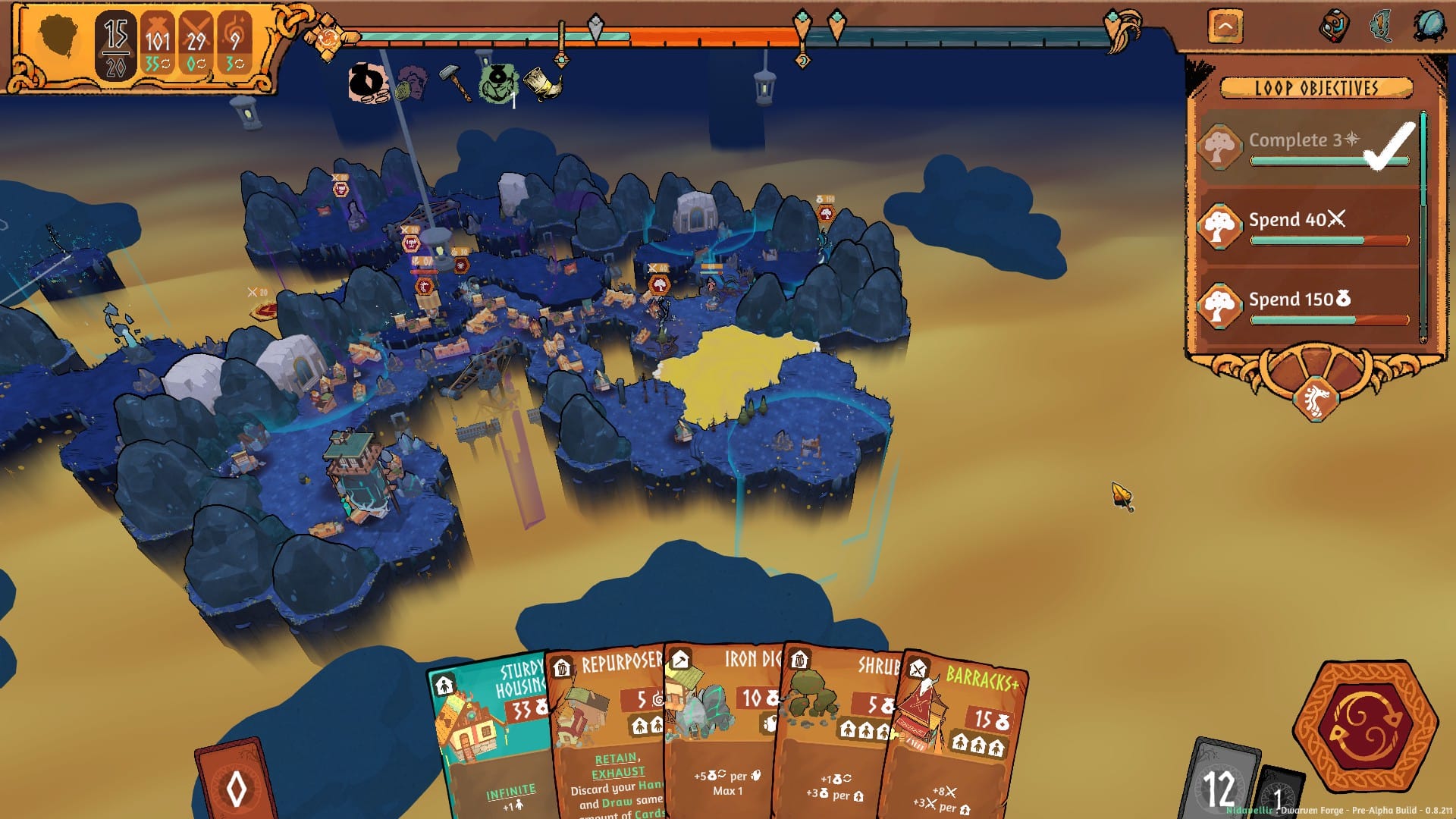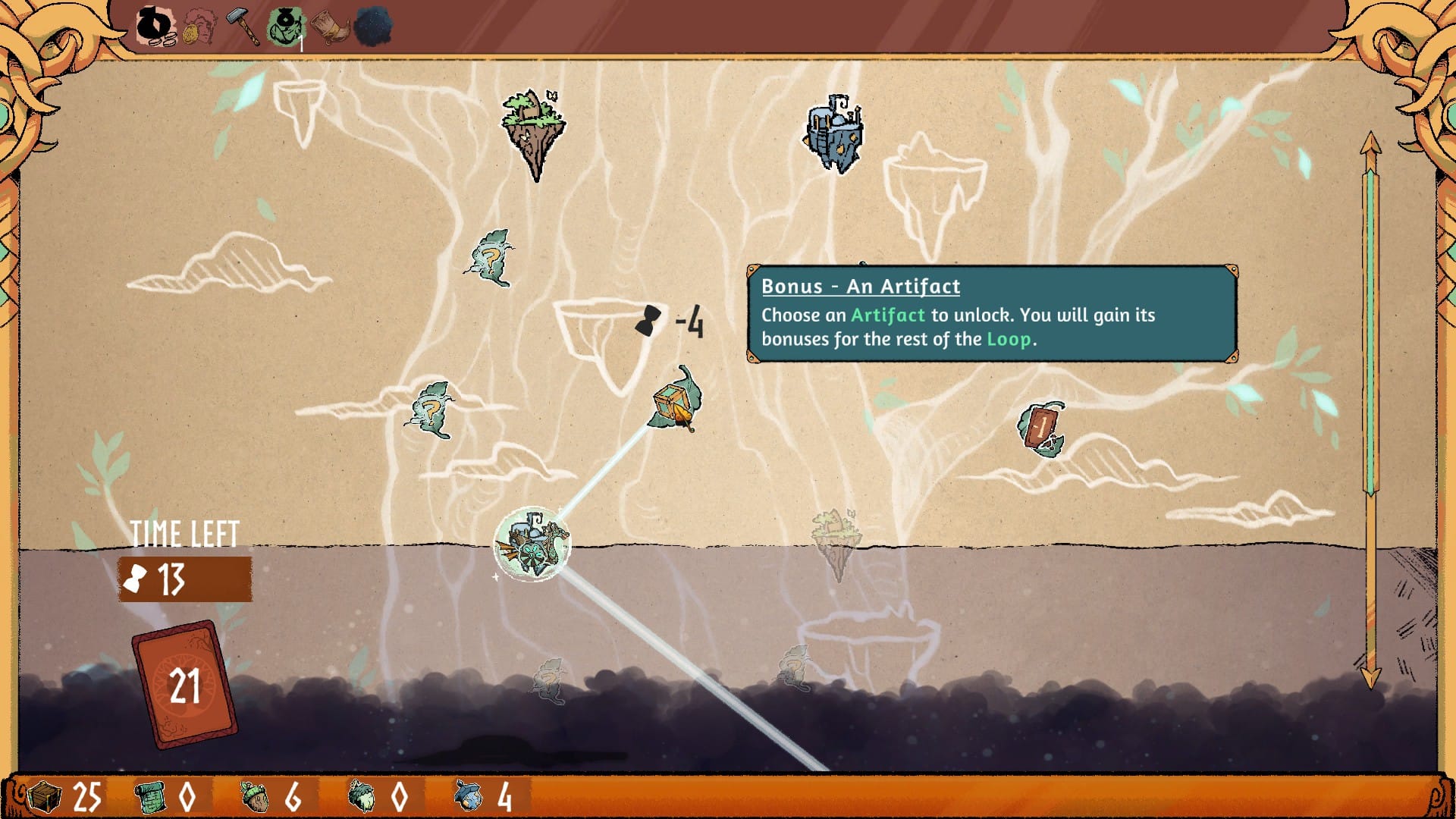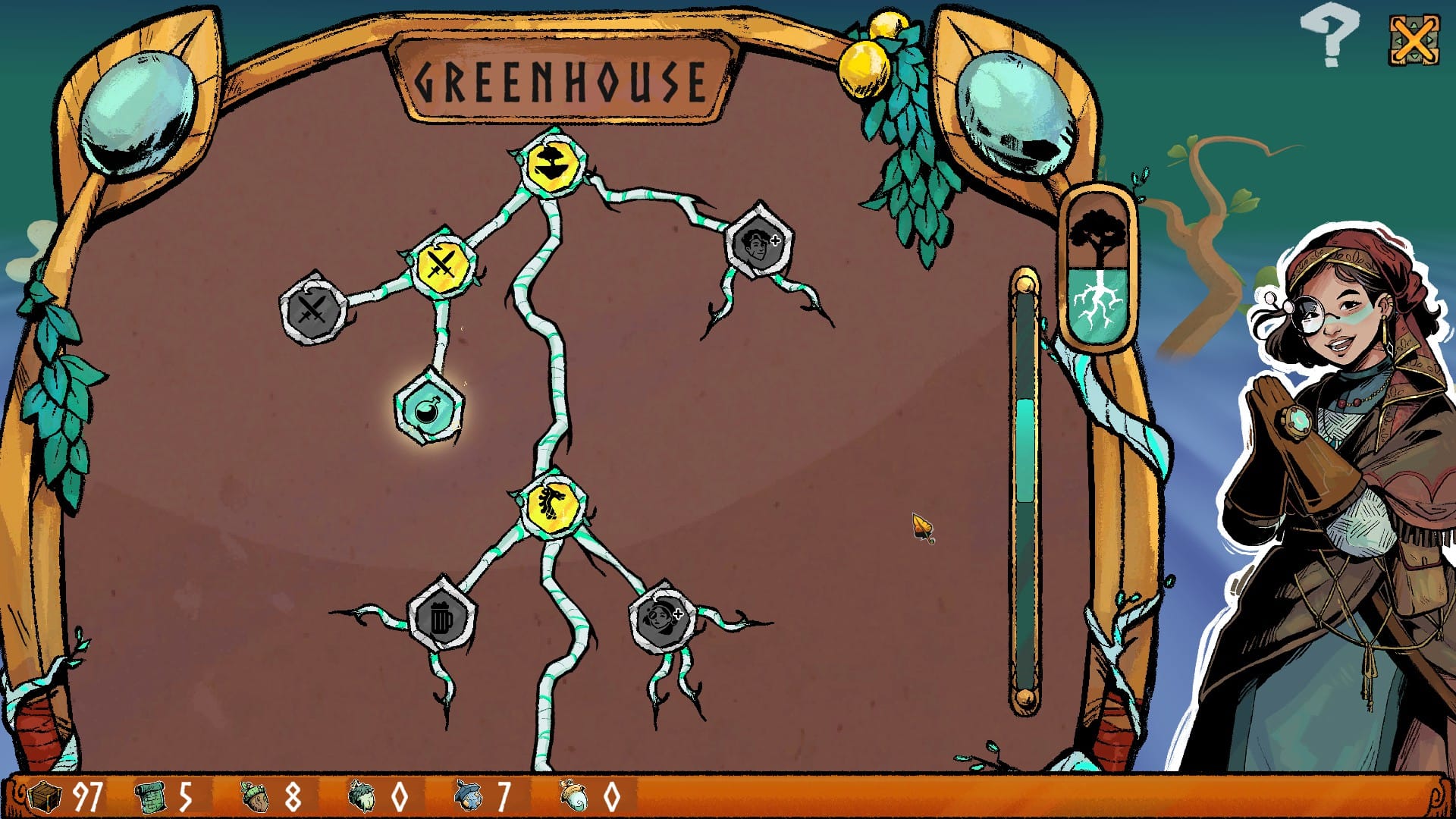Roots of Yggdrasil: Cards Against Ragnarok
Play the cards, save the world

The city builder is a low-key genre that doesn't necessarily get the attention it deserves. We've come a long way since SimCity, with a wide range of settings, mechanics, graphical styles, and even narratives getting whirled into the ever-growing genre.
Roots of Yggdrasil is one of the more interesting city builders I've seen in a while, merging the usual mechanics with deckbuilding and some novel problem-solving. It might take a while to get a good grasp on strategy, but once you're over that hurdle there's a lot to do here.

The end of days has come. In the wake of Ragnarok, the Nine Worlds have been shattered and the fabric of time has sundered itself. Yet humanity has managed to survive the fall of the gods. A small tribe of Vikings, led by the chieftain Sunna, have managed to reach a safe ground known as the Holt. From here, they will launch a quest to restore the great tree Yggdrasil and climb to Asgard, the realm of the Aesir.
There is one complication - the fall of the gods has bent time into a loop. This means that Sunna's people have no fear of death, but they also have no way out without divine assistance. Reaching Asgard will mean currying favor with the last of the Aesir and whatever sacred beings are left to guide them.
This rough-and-tumble setting might sound like it would lend itself to an action title, but Roots of Yggdrasil is a no-violence type of game. It features an eclectic mix of elements from city builders, deck builders, strategy, and puzzle games.

Roots of Yggdrasil is one of the more interesting city builders I've seen in a while, merging the usual mechanics with deckbuilding and some novel problem-solving.
The objective is to move between floating islands, harvesting the seeds of Yggdrasil to power your ship. Time is pressing, as a destructive black fog is climbing the great tree behind you.
Upon reaching an island, the player begins building a settlement using a hand of cards. These buildings both consume and generate different resources that can be used to continue exploring and expanding across the island. Positioning counts as well, as most buildings need to be placed close to another building or feature. Growing the overall population lets the player draft additional cards, which can be used for the duration of the run.
The objective on each island is to "activate" enough Yggdrasil saplings to power the ship to the next island. Each sapling has different requirements, including constructing certain kinds of buildings nearby, expending certain resources, or completing an objective elsewhere on the map. The player needs to do this quickly - finishing early means more time to explore smaller pockets of land for bonuses while taking too long means death.
But death isn't the end in Roots of Yggdrasil. Completing a run - whether by reaching a certain point or falling to the black fog - means earning resources that can be used to expand and upgrade the Holt, granting boons on future runs.

The mechanics are fairly straightforward, but there's a bit of a learning curve due to the novelty. It'll probably also take a run or two to get a handle on how to plan for each island, which is definitely the hardest part of the experience. With limited space, resources, and time, it's easy to cut yourself off from certain saplings.
Roots of Yggdrasil has a bit more story than you'd expect from a deckbuilder. Each successful loop reveals a story beat, and there are also several minor divinities to interact with and plenty of interpersonal moments with the central cast. While that's hardly the focus of the game, it does give it a little more depth.
Ultimately, Roots of Yggdrasil is an interesting spin on two fast-growing genres. It's worth a look if you are a fan of either city builders or deckbuilders and want to try something a little different.
